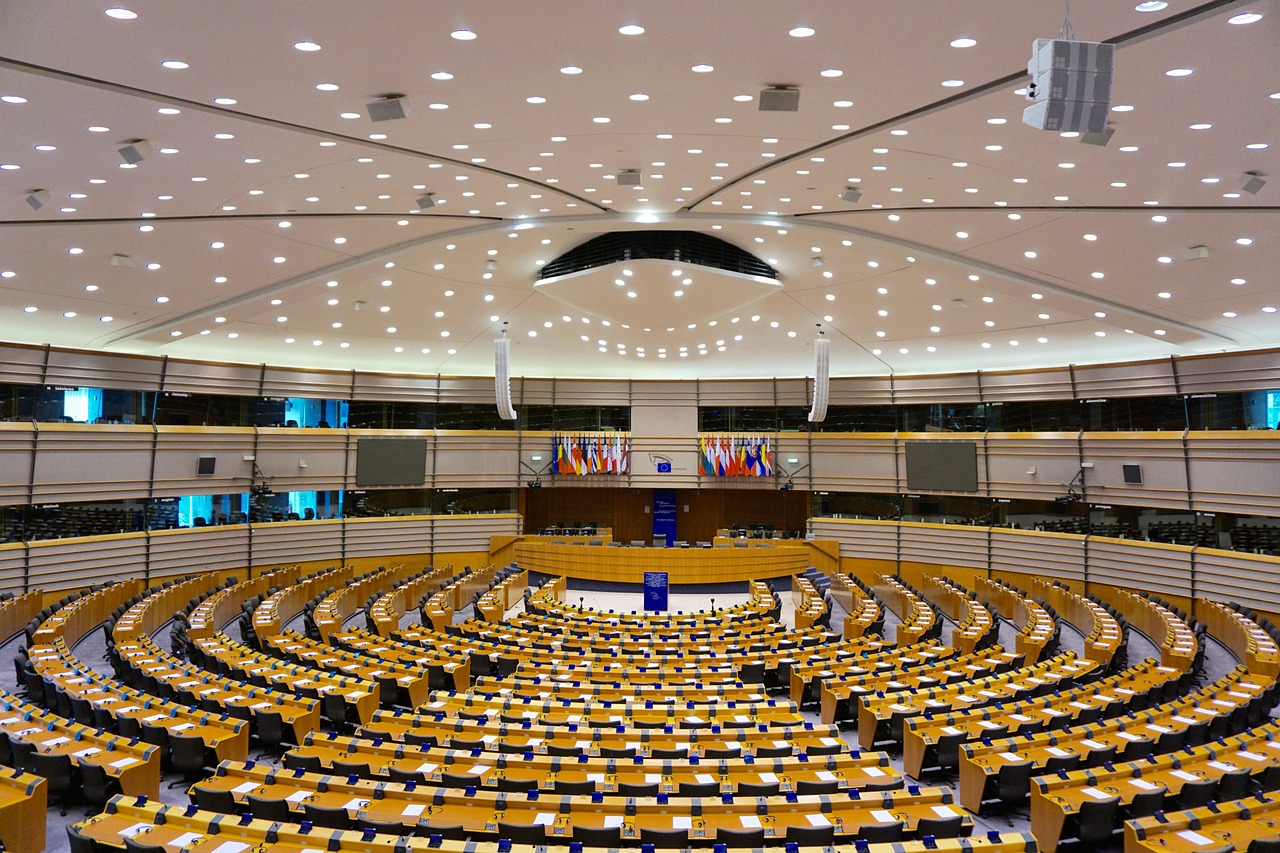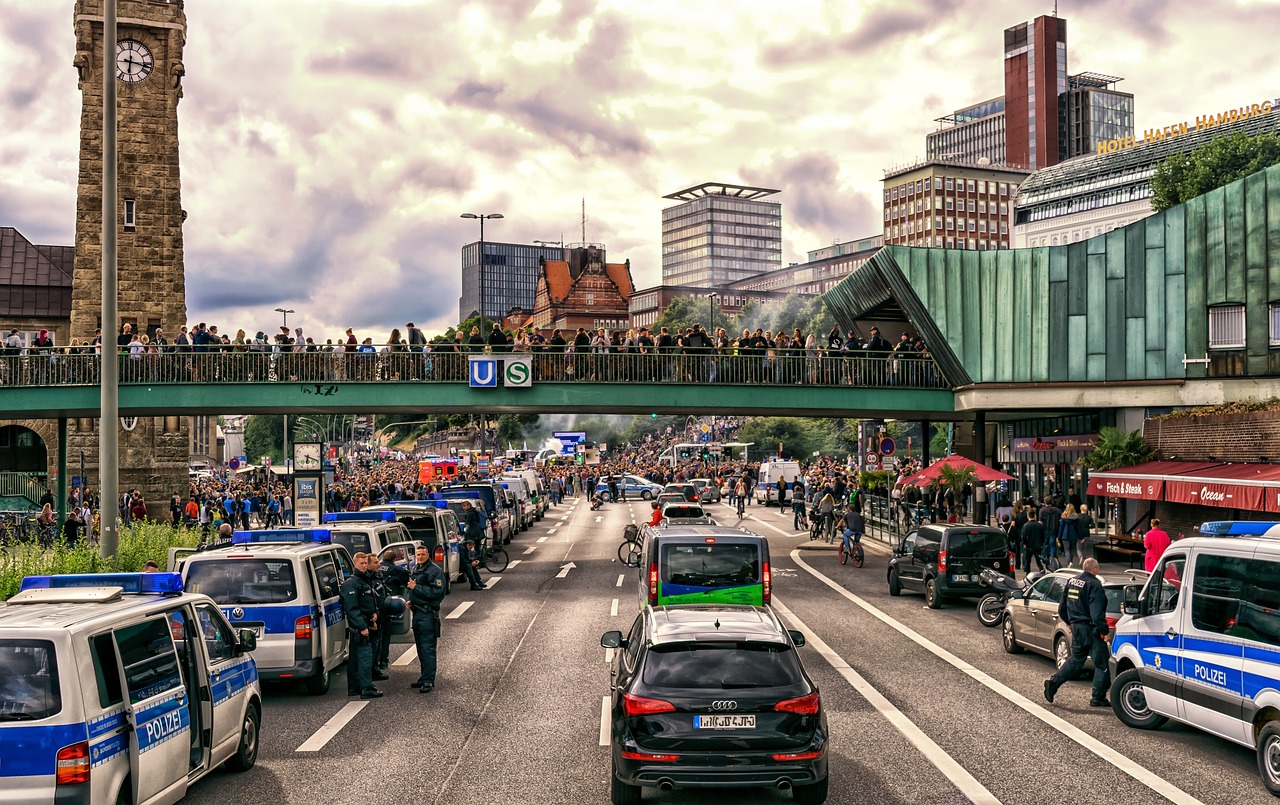Is Democracy the Final Destination of Political Philosophy?
When we think about the journey of political philosophy, it’s like traversing a vast landscape filled with various terrains, each representing different forms of governance. At the end of this journey, many argue that democracy stands as the final destination. But is it really? This article will delve deep into the evolution of political thought, examining whether democracy truly embodies the ultimate goal in governance. Or could there be other paths that are equally valid, albeit less trodden?
To understand this question, we must first explore the historical context of democracy. Imagine ancient Greece, where the seeds of democratic thought were planted in the fertile ground of philosophical inquiry. The practices of direct democracy in city-states like Athens laid the groundwork for modern democratic systems. Citizens gathered to discuss and decide on matters of state, showcasing an early form of civic engagement that resonates even today. However, as we peel back the layers of history, we find that this idealized version of democracy was often marred by exclusions—women, slaves, and non-citizens were left out of this political equation.
Fast forward to the present, and we find ourselves wrestling with the implications of these historical roots. Are we truly living in a democracy, or are we merely echoing the past? The philosophical underpinnings of democracy are complex and have been shaped by numerous thinkers throughout history. Key philosophers like Plato, Aristotle, and Rousseau have all contributed to the discourse, each adding their unique perspectives on governance and the role of the individual within it.
One cannot discuss democracy without acknowledging Plato's critique of it. He famously argued that democracy could lead to chaos, as he believed that the majority might not always act in the best interest of the state. His vision of a philosopher-king, a ruler who possesses wisdom and virtue, raises poignant questions about the efficacy of democratic governance. Is it possible that the very essence of democracy—giving power to the people—could lead to detrimental outcomes? This skepticism invites us to ponder whether democracy is the pinnacle of political philosophy or just one of many paths.
On the other hand, we have Rousseau's concept of the general will, which champions the idea of collective decision-making. His belief that individuals must engage actively in the political process is crucial for a functioning democracy. Rousseau's vision emphasizes the importance of civic participation, suggesting that true democracy is not merely about casting votes but about fostering a community where individuals are invested in the collective good. This perspective positions democracy as a living, breathing entity that requires constant nurturing and engagement.
As we compare democracy to other political systems, such as authoritarianism and oligarchy, we begin to see the strengths and weaknesses of each. Authoritarian regimes often promise efficiency and stability, but at what cost? The critique of democratic decision-making processes often points to the slow and sometimes cumbersome nature of consensus-building. On the flip side, oligarchies—where power is concentrated in the hands of a few—can emerge within democratic frameworks, raising questions about inequality and representation.
Modern democracies are not without their challenges. Today, we face issues like populism, misinformation, and political polarization, all of which threaten the very fabric of democratic governance. These challenges force us to reconsider the viability of democracy as the ultimate goal. Can democracy adapt to these modern dilemmas, or are we witnessing its decline? The future of political philosophy may hinge on our ability to address these pressing concerns.
Looking ahead, the trajectory of political philosophy appears to be in flux. As societies evolve, so too must our understanding of governance. Will democracy continue to be viewed as the final destination, or will new political ideologies emerge that challenge this notion? The answers to these questions are not clear-cut, but they invite us to engage in a deeper dialogue about the nature of power, governance, and the role of the individual in shaping our collective future.
- What is democracy? Democracy is a system of governance where power is vested in the people, who exercise that power directly or through elected representatives.
- Who were the key philosophers that influenced democratic thought? Key philosophers include Plato, Aristotle, and Rousseau, each offering unique insights into the nature of governance and the role of citizens.
- What are the challenges facing modern democracies? Modern democracies face challenges such as populism, misinformation, and political polarization, which can undermine democratic processes.
- Is democracy the best form of government? While many argue in favor of democracy for its emphasis on individual rights and participation, others point to the effectiveness of alternative systems like authoritarianism or oligarchy.

The Historical Context of Democracy
To truly grasp the essence of democracy and its place in political philosophy, we must embark on a journey through time, exploring its historical roots. The concept of democracy has evolved significantly from its ancient origins to the complex systems we see today. It is fascinating to note that the term itself is derived from the Greek words "demos," meaning people, and "kratos," meaning power or rule. This etymology highlights the core principle of democracy: the idea that power should rest with the people.
In ancient Athens, around the 5th century BCE, we see one of the earliest forms of democracy in action. This was a direct democracy where citizens participated actively in decision-making. However, it’s essential to recognize that this form of governance was limited; only free male citizens could vote, excluding women, slaves, and foreigners. Despite its limitations, Athenian democracy laid the groundwork for future democratic ideals by emphasizing participation and public discourse.
Fast forward to the Enlightenment period, where the philosophical underpinnings of democracy began to flourish. Thinkers like John Locke and Montesquieu championed ideas of individual rights and the separation of powers, which would eventually influence modern democratic systems. Locke's assertion that governments derive their power from the consent of the governed became a cornerstone of democratic thought, emphasizing the importance of the people's voice in governance.
As we move through history, we encounter the establishment of representative democracy, particularly in the late 18th century with the American and French Revolutions. These revolutions were pivotal moments that shifted the narrative from monarchy and aristocracy to a system where the people had a say in their governance. The U.S. Constitution and the Declaration of the Rights of Man and of the Citizen became foundational texts that enshrined democratic principles, such as equality and liberty, into law.
However, the journey of democracy has not been without its challenges. The historical context reveals a pattern of struggle against authoritarianism and oligarchy, as various groups have sought to reclaim power for the populace. The 20th century, in particular, saw waves of democratization across the globe, often in response to oppressive regimes. Yet, even today, we witness a tug-of-war between democratic ideals and authoritarian tendencies, reminding us that the historical context of democracy is not just a tale of triumph but also one of ongoing struggle.
In summary, the historical context of democracy is rich and multifaceted. It is a story of the evolution of ideas, the fight for rights, and the continuous engagement of the populace in governance. As we reflect on this journey, we can appreciate how past events and philosophies have shaped the democratic systems we engage with today, reminding us that democracy is not merely an endpoint but a dynamic process that requires constant vigilance and participation.

Key Philosophers and Their Views
The discourse surrounding democracy is rich and complex, shaped significantly by the contributions of various philosophers throughout history. Each thinker has offered unique insights that have influenced the way we understand governance today. From ancient Greece to the Enlightenment, these intellectual giants have grappled with the essence of democracy, its merits, and its shortcomings. Their ideas serve as a foundation for contemporary democratic thought and continue to spark debates about the best forms of governance.
One of the most notable figures in this discussion is Plato, who, despite his historical context, remains a pivotal voice in political philosophy. In his work "The Republic," Plato famously critiques democracy, arguing that it can lead to chaos and mob rule. He posits that the ideal state should be governed by a philosopher-king, a wise ruler who possesses the knowledge and virtue necessary to make just decisions for the good of the state. Plato's skepticism raises important questions: Can the average citizen truly make informed decisions? Or are they easily swayed by demagogues? His views prompt us to consider the balance between individual participation and the need for informed leadership in a democracy.
On the other hand, Aristotle, a student of Plato, offers a more nuanced perspective. In his work "Politics," he categorizes governments based on who rules and for whose benefit. Aristotle acknowledges the potential for democracy to serve the common good, but he also warns of its vulnerabilities, particularly the risk of tyranny of the majority. He advocates for a mixed government, combining elements of democracy with aristocracy, to harness the strengths of each system while mitigating their weaknesses. This idea of a balanced approach resonates today, as many democracies strive to incorporate checks and balances to prevent abuses of power.
Moving forward in time, we encounter Jean-Jacques Rousseau, whose concept of the "general will" revolutionizes democratic thought. Rousseau argues that true democracy is achieved when citizens collectively determine the will of the people, transcending individual interests for the common good. His emphasis on civic engagement and participation highlights the importance of active citizenship in a functioning democracy. Rousseau's ideas challenge us to rethink our role within the political system: Are we merely passive voters, or should we actively engage in shaping our society? His vision of democracy as a collaborative endeavor remains relevant as we navigate the complexities of modern governance.
In summary, the contributions of these key philosophers illustrate the diverse perspectives that have shaped our understanding of democracy. From Plato's cautionary tales to Aristotle's balanced approach and Rousseau's call for civic engagement, their ideas continue to resonate in contemporary discussions about governance. As we reflect on their views, we are reminded of the ongoing evolution of political philosophy and the necessity of adapting our democratic ideals to meet the challenges of our time.
- What is the main critique of democracy according to Plato?
Plato critiques democracy for its potential to devolve into mob rule, arguing that only a philosopher-king possesses the wisdom to govern justly. - How does Aristotle view democracy?
Aristotle acknowledges democracy's capacity to serve the common good but warns of the risks of majority tyranny. He advocates for a mixed government to balance its strengths and weaknesses. - What is Rousseau's concept of the general will?
Rousseau's general will refers to the collective will of the people, emphasizing that true democracy arises when citizens prioritize the common good over individual interests.

Plato's Critique of Democracy
Plato, one of the most influential philosophers in Western thought, had a rather skeptical view of democracy. He believed that the system, while seemingly appealing, was fraught with potential pitfalls that could undermine its very essence. In his view, democracy often leads to a mob mentality where the masses, driven by emotion rather than reason, make decisions that can be detrimental to the state. Imagine a ship where the crew, rather than the captain, decides the course. Chaos is likely to ensue, and Plato feared that this chaos could lead to tyranny.
In his famous work, "The Republic," Plato proposed the idea of the philosopher-king—a ruler who possesses both wisdom and virtue. He argued that only those who truly understand the complexities of justice and governance should hold power. This notion stems from his belief that most people lack the necessary knowledge to make informed decisions about their governance. He famously stated, “The heaviest penalty for declining to rule is to be ruled by someone inferior to yourself.” This raises a crucial question: Can a system that prioritizes the opinion of the majority truly be just?
Plato's critique can be summarized in several key arguments:
- Ignorance of the Masses: He believed that the average citizen lacks the expertise required to make sound political decisions.
- Emotional Decision-Making: Decisions driven by passion rather than rational thought can lead to instability.
- Risk of Demagoguery: Charismatic leaders can manipulate public opinion for their own gain, steering the state toward chaos.
Moreover, Plato posited that democracy could lead to a degradation of virtue among citizens. When individuals prioritize their personal desires over the common good, the very fabric of society begins to unravel. He feared that democracy, in its purest form, could devolve into a system where the loudest voices drown out the most reasoned arguments. This concern is not unfounded, as we often witness in contemporary politics how sensationalism can overshadow substantive discourse.
In essence, Plato's critique of democracy serves as a cautionary tale. He challenges us to reflect on the nature of governance and the qualifications necessary for leadership. While democracy promotes the idea of equality, Plato invites us to consider whether true equality can exist without a foundation of knowledge and virtue. His arguments continue to resonate today, prompting ongoing debates about the efficacy of democratic systems and the qualifications of those who lead them.

Rousseau's Concept of the General Will
When we dive into the philosophical waters of Jean-Jacques Rousseau, we encounter a concept that is as profound as it is essential to understanding modern democracy: the General Will. Rousseau argued that true democracy arises not from the will of the majority, but from the collective will of the people, which he termed the General Will. This concept is pivotal because it emphasizes the importance of civic engagement and the idea that the community should govern itself based on a collective understanding of what is best for all, rather than individual interests.
Imagine a group of friends trying to decide on a movie to watch. If everyone votes for their personal favorite, the outcome may not reflect what the group truly desires as a whole. Instead, if they discuss their preferences and come to a consensus about a film that everyone can enjoy, they are embodying Rousseau's General Will. This metaphor illustrates how individual desires can sometimes cloud the greater good, a notion Rousseau warned against.
Rousseau believed that the General Will is inherently aimed at the common good, which means that it transcends individual interests. In his view, political authority is justified only when it is in alignment with the General Will. This leads to a critical question: how do we determine what the General Will is? Rousseau suggested that it emerges from the deliberation and participation of all citizens, which is why he advocated for active civic engagement. He viewed citizens not merely as passive recipients of laws but as active participants in the political process.
One of the intriguing aspects of Rousseau's theory is its implications for freedom. He argued that true freedom is found in obedience to the law that one has a hand in creating. This means that when individuals participate in the formation of the General Will, they are not surrendering their freedom; rather, they are enhancing it by aligning their personal interests with the collective good. This idea challenges the notion that democracy is merely a system of majority rule and invites us to think critically about the responsibilities that come with citizenship.
Rousseau's concept of the General Will has sparked considerable debate among political philosophers. Some argue that it provides a robust framework for understanding democratic governance, while others caution against its potential for tyranny of the majority. The tension between individual rights and collective decision-making remains a relevant issue in contemporary political discourse. As we navigate the complexities of modern democracies, Rousseau's insights remind us of the necessity of balancing personal freedoms with the pursuit of the common good.
In conclusion, Rousseau's General Will is not just an abstract philosophical idea; it serves as a guiding principle for how we can engage with democracy today. It challenges us to consider how we can better participate in our communities and ensure that our political systems reflect the collective will of the people. The ongoing dialogue about the General Will continues to shape our understanding of democracy and its role in fostering a just society.
- What is the General Will according to Rousseau?
The General Will is the collective will of the people aimed at the common good, transcending individual interests. - How does Rousseau's concept of the General Will relate to democracy?
Rousseau believed that true democracy involves citizens actively participating in the formation of the General Will, ensuring that political authority aligns with the common good. - What are the implications of the General Will for individual freedom?
Rousseau argued that individuals achieve true freedom by obeying laws they have a role in creating, thus linking personal interests with the collective good. - Why is Rousseau's idea of the General Will still relevant today?
His insights encourage active civic engagement and highlight the balance between individual rights and collective decision-making in modern democracies.

Democracy vs. Other Political Systems
When we think about governance, the first thing that often comes to mind is democracy. It's like the shiny trophy on the shelf of political systems, celebrated and aspired to by many. But have you ever wondered how democracy stacks up against other forms of governance? This question opens a Pandora's box of political philosophy, revealing a spectrum of systems, each with its own merits and flaws. In this exploration, we’ll dive into the world of authoritarianism and oligarchy, comparing them to democracy and examining the philosophical justifications that underpin these systems.
At its core, democracy champions the idea of popular sovereignty, where the power lies with the people, typically exercised through free and fair elections. However, this ideal is often challenged by alternative systems. For instance, authoritarian regimes, while often criticized for suppressing individual freedoms, argue that they can deliver efficiency and stability that democracies sometimes struggle to achieve. In an authoritarian setup, decision-making is centralized, allowing for swift action without the bureaucratic delays often seen in democratic processes. This can be particularly appealing in times of crisis, where decisive leadership is crucial.
On the other hand, we have oligarchy, a system where a small group of elites hold power. This raises a fascinating question: can democracy coexist with oligarchic tendencies? In many modern democracies, we see the emergence of oligarchic structures, where wealth and influence skew political power. It’s like a game of chess where only a few players seem to control the board, regardless of the rules that are supposed to ensure fairness. The philosophical implications are profound, suggesting that even in democracies, the voices of the many can be drowned out by the interests of the few.
To better understand the distinctions, let's consider the following table that outlines key differences between these political systems:
| Political System | Power Structure | Decision-Making Process | Pros | Cons |
|---|---|---|---|---|
| Democracy | People | Majority Rule | Representation, Accountability | Slow Decision-Making, Polarization |
| Authoritarianism | Central Authority | Top-Down | Efficiency, Stability | Suppression of Freedoms, Lack of Accountability |
| Oligarchy | Elite Group | Consensus Among Few | Expertise, Stability | Disenfranchisement of Majority, Inequality |
As we navigate through these various political systems, it becomes clear that each has its own philosophical underpinning. Democracy, with its emphasis on equality and participation, stands in stark contrast to the more centralized and hierarchical structures of authoritarianism and oligarchy. Yet, the real world is rarely black and white. Many nations operate in a gray area, exhibiting traits of multiple systems. This blending can lead to a rich tapestry of governance, but it also poses significant challenges to the ideal of democracy.
In conclusion, while democracy is often viewed as the pinnacle of political philosophy, it is essential to critically assess its position against other systems. Each has its strengths and weaknesses, and understanding these nuances is key to fostering a more informed political discourse. As we continue to grapple with the complexities of governance, the question remains: is democracy truly the final destination, or merely one stop on the journey of political evolution?
- What is the main advantage of democracy? The main advantage of democracy is that it allows for representation and accountability, giving people a voice in their governance.
- How does authoritarianism differ from democracy? Authoritarianism centralizes power in a single authority, often at the expense of individual freedoms, while democracy emphasizes popular participation and rights.
- Can a democracy become an oligarchy? Yes, democracies can develop oligarchic traits if a small group of elites begins to dominate political power, often through wealth or influence.
- What are the challenges facing modern democracies? Modern democracies face challenges such as populism, misinformation, and political polarization, which can undermine their effectiveness.

The Appeal of Authoritarianism
When we think about governance, the image of a democratic society often comes to mind—people voting, debates raging, and a cacophony of opinions shaping policy. But what about authoritarianism? It's a term that can send shivers down the spine, yet it holds a certain allure for some, and understanding this appeal is crucial in today’s political climate. Authoritarian regimes often boast of their ability to deliver stability and efficiency, qualities that can seem appealing in a world fraught with chaos and uncertainty.
One of the primary attractions of authoritarianism is the promise of swift decision-making. In a democratic setup, decisions often get bogged down in lengthy debates and the need for consensus. Think about it: how many times have you watched a legislative body debate a simple bill for weeks on end? In contrast, authoritarian leaders can enact policies almost overnight. This efficiency can be incredibly appealing, especially during crises when immediate action is necessary.
Moreover, authoritarian regimes can project an image of stability. In times of economic downturn or social unrest, the promise of a strong leader who can maintain order can be seductive. People often equate stability with safety, and in a world where the future feels uncertain, the idea of having a decisive hand at the helm can feel reassuring. Just consider how many people have rallied behind authoritarian figures during turbulent times, believing that strong leadership is the antidote to chaos.
However, it’s essential to recognize the philosophical underpinnings that support such regimes. Proponents argue that authoritarianism can lead to a more unified society, as dissenting voices are often silenced for the sake of the greater good. They might claim that too much freedom can lead to division and conflict, suggesting that a controlled society can prevent the chaos that comes from too many competing interests. This perspective raises a fundamental question: is it better to have a society that prioritizes order over individual freedoms?
To illustrate this further, let's explore some of the common arguments made in favor of authoritarian governance:
| Argument | Description |
|---|---|
| Efficiency | Quick decision-making without the delays of debate and dissent. |
| Stability | Reduced chaos and conflict, providing a sense of safety and order. |
| Unity | A single narrative can foster a sense of belonging and collective identity. |
While these arguments may resonate with some, they also raise significant ethical concerns. The suppression of dissent and the curtailment of individual freedoms often lead to a society where fear and control replace genuine democratic engagement. The question remains: can a society truly thrive under authoritarianism, or does it merely mask deeper issues that will eventually resurface?
In conclusion, while authoritarianism may offer a tempting alternative to the complexities of democracy, it is crucial to weigh the costs against the benefits. The appeal lies in its promise of order and efficiency, but at what price? As we navigate the complexities of modern governance, understanding these dynamics is essential for anyone interested in the future of political philosophy.
- What are the main characteristics of authoritarianism?
Authoritarianism is characterized by strong central power, limited political freedoms, and often the suppression of dissent. Leaders maintain control through various means, including censorship and propaganda.
- Can authoritarian regimes be stable?
Yes, authoritarian regimes can provide a sense of stability, particularly during crises. However, this stability often comes at the expense of individual freedoms and democratic processes.
- What are the risks of authoritarian governance?
Risks include human rights abuses, lack of political pluralism, and potential for corruption. Over time, the suppression of dissent can lead to societal unrest and upheaval.

Oligarchy and the Rule of the Few
Oligarchy, a term derived from the Greek words "oligos" (few) and "arkhein" (to rule), represents a political system where a small group of individuals holds significant power and influence over the majority. This form of governance often emerges within democratic contexts, subtly undermining the principles of equality and representation that democracy espouses. The allure of oligarchy lies in its promise of efficiency and stability, particularly in times of crisis or uncertainty. But what does it mean for the average citizen? Is the rule of a select few truly beneficial, or does it pave the way for disenfranchisement?
One of the most striking aspects of oligarchy is how it can infiltrate democratic systems. While democracies are designed to empower the populace, they can unwittingly create conditions conducive to oligarchic rule. For instance, the concentration of wealth can lead to a concentration of power. As resources become unevenly distributed, a small elite may gain disproportionate influence over political decisions, often prioritizing their interests over those of the general public. This phenomenon raises critical questions about the true nature of democracy: are we genuinely governed by the people, or are we merely subjects to the whims of the few?
To illustrate this dynamic, consider the following characteristics that often define an oligarchic system:
- Concentration of Wealth: Wealthy individuals or families can leverage their resources to influence political outcomes, often through lobbying or campaign financing.
- Limited Political Participation: The average citizen may feel disillusioned and disengaged from the political process, believing their voice holds little weight against the powerful few.
- Policy Decisions Favoring Elites: Legislation may be crafted to benefit the interests of the elite, rather than the broader population, leading to increased inequality.
Moreover, the emergence of oligarchies within democracies can lead to a vicious cycle. As the elite consolidate power, they may implement policies that further entrench their position, making it increasingly difficult for alternative voices to be heard. This not only stifles political diversity but can also foster a sense of apathy among the populace. When people perceive that their participation in the democratic process is futile, they may withdraw entirely, allowing oligarchic structures to flourish unchecked.
Interestingly, the tension between democracy and oligarchy is not a new phenomenon. Historical examples abound where democratic institutions have been co-opted by elite interests. Ancient Greece, the birthplace of democracy, experienced its own struggles with oligarchic governance. The Athenian democracy, while revolutionary, faced challenges from oligarchic factions that sought to undermine the democratic process. This historical context serves as a poignant reminder that the fight for true democracy is ongoing and requires vigilance from the citizenry.
In conclusion, the rule of the few presents significant challenges to democratic ideals. While oligarchies may promise stability and efficiency, they often come at the cost of equity and representation. As citizens, it is imperative to remain aware of the subtle ways in which oligarchic tendencies can infiltrate our political systems. Only through active participation and advocacy for transparency can we hope to preserve the democratic values that underpin our societies.

The Challenges Facing Modern Democracies
In today’s world, democracies are grappling with a myriad of challenges that threaten their very foundations. One of the most pressing issues is populism. Populist movements often arise from a sense of disillusionment among the populace, leading to a charismatic leader promising to restore power to the "common people." While this can invigorate political participation, it can also undermine democratic norms by disregarding established institutions and processes. The allure of a single, powerful voice can overshadow the importance of collective decision-making, raising the question: are we sacrificing our democratic ideals for the sake of simplicity?
Another significant hurdle is the rampant spread of misinformation. With the advent of social media, false narratives can travel faster than the truth. This phenomenon not only distorts public perception but also polarizes communities, creating an environment where rational discourse is nearly impossible. Imagine trying to navigate a maze blindfolded; that’s what voters face when they are bombarded with conflicting information. The challenge lies in fostering media literacy among citizens and ensuring that they can discern fact from fiction.
Political polarization is yet another challenge that modern democracies must confront. As citizens become increasingly divided along ideological lines, the very fabric of democratic dialogue frays. Compromise, a cornerstone of democratic governance, becomes a rarity rather than the norm. This polarization can lead to gridlock in legislative bodies, where the inability to find common ground stymies progress on critical issues like healthcare, education, and climate change. The question looms large: how can we bridge the widening chasm between differing viewpoints?
Furthermore, the rise of authoritarianism poses a significant threat to democracies worldwide. In some regions, we’ve seen a shift towards autocratic governance, where leaders consolidate power and suppress dissent. This trend raises a critical philosophical question: can democracy survive in a world where authoritarian regimes are increasingly viewed as efficient and stable? The allure of quick decision-making and strong leadership can tempt nations to abandon democratic principles in favor of perceived stability.
As we navigate these challenges, it’s essential to recognize that the future of democracy depends on the active engagement of its citizens. Civic education and participation are crucial in combating the forces that threaten democratic governance. We must encourage open dialogue, critical thinking, and a commitment to truth. Only then can we hope to overcome the obstacles that stand in the way of a thriving democratic society.
- What is populism and how does it affect democracy?
Populism is a political approach that seeks to represent the interests of ordinary people, often against a perceived corrupt elite. While it can increase political engagement, it also risks undermining democratic institutions. - How does misinformation spread in modern democracies?
Misinformation spreads rapidly through social media and online platforms, leading to confusion and distrust among the public. This makes it difficult for citizens to make informed decisions. - What are the effects of political polarization?
Political polarization can lead to a breakdown in communication and compromise, resulting in legislative gridlock and increased societal tensions. - Can authoritarianism coexist with democratic ideals?
While authoritarian regimes may offer stability, they often do so at the expense of individual freedoms and democratic processes, raising questions about their long-term viability.

Future Directions for Political Philosophy
The landscape of political philosophy is constantly evolving, much like a river that carves its path through the earth. As we navigate through the complexities of modern governance, it's essential to consider the future directions that political philosophy might take. With the rise of new technologies, global interconnectivity, and shifting societal values, the philosophical inquiries surrounding governance are bound to transform.
One significant area of exploration is the impact of technology on democracy. The digital age has introduced tools that can enhance civic engagement, such as social media platforms that allow for real-time discussions and mobilization. However, these same platforms can also lead to echo chambers and the spread of misinformation, challenging the very foundations of informed decision-making. Philosophers will need to grapple with questions like: How can we ensure that technology serves democracy rather than undermines it? What ethical frameworks should guide the use of AI in governance?
Moreover, the concept of global citizenship is gaining traction. As the world becomes increasingly interconnected, traditional notions of state sovereignty are being challenged. Political philosophers are beginning to explore the implications of global governance and whether we need a new framework to address issues that transcend national borders, such as climate change, migration, and pandemics. This raises profound questions: Should we prioritize global rights over national interests? How do we create a sense of belonging in a world that is more interconnected than ever?
Another critical direction is the examination of inequality and social justice. As disparities in wealth and power grow, the philosophical discourse around equity becomes more urgent. Thinkers are revisiting the ideas of justice proposed by philosophers like John Rawls and Amartya Sen, questioning how these principles can be applied in contemporary society. Is it enough to ensure equal opportunities, or do we need to actively redistribute resources to achieve true equity? The answers to these questions will shape the future of democratic governance and the role of political philosophy in addressing systemic injustices.
Furthermore, the resurgence of populism presents a unique challenge to traditional democratic ideals. Political philosophers are tasked with understanding the appeal of populist movements and their implications for the political landscape. Is populism a genuine expression of the will of the people, or does it threaten the very fabric of democracy? This inquiry will require a nuanced understanding of the relationship between the electorate and their leaders, as well as the role of political rhetoric in shaping public opinion.
In this ever-changing environment, the future of political philosophy is likely to be characterized by a multidisciplinary approach. As political, social, and economic issues become increasingly intertwined, philosophers may draw from fields such as psychology, sociology, and environmental science to inform their inquiries. This holistic perspective could lead to more comprehensive solutions to the pressing challenges of our time.
In conclusion, the future of political philosophy is not just about finding answers but also about embracing the questions that arise in a complex and dynamic world. As we look ahead, it's crucial to remain open to new ideas and perspectives, ensuring that our philosophical inquiries continue to evolve alongside the societies they seek to understand. The journey ahead may be uncertain, but one thing is clear: the quest for a just and equitable society will remain at the forefront of political thought.
- What is the role of technology in shaping future political philosophy?
Technology can enhance civic engagement but also poses challenges such as misinformation and echo chambers. - How does global citizenship affect political philosophy?
Global citizenship encourages the exploration of governance that transcends national borders and addresses global issues. - Why is inequality a significant concern in political philosophy?
Increasing disparities in wealth and power prompt a reevaluation of justice and equity in democratic systems. - What is the relationship between populism and democracy?
Populism raises questions about the authenticity of democratic representation and the potential threats it poses to traditional democratic values.
Frequently Asked Questions
- What is the historical significance of democracy?
Democracy has deep historical roots that trace back to ancient civilizations, particularly in Greece. Understanding its evolution helps us appreciate how modern democratic systems emerged and the values they embody. It’s not just about voting; it’s about the ongoing struggle for representation and rights that has shaped societies over centuries.
- How do key philosophers influence our understanding of democracy?
Philosophers like Plato, Aristotle, and Rousseau have profoundly impacted democratic thought. Plato’s skepticism about the masses and his idea of the philosopher-king challenge us to think critically about who should lead. Meanwhile, Rousseau’s concept of the general will emphasizes the importance of collective decision-making, which is essential for a functioning democracy.
- What are the main criticisms of democracy?
Critics argue that democracy can lead to inefficiencies and the “tyranny of the majority,” where the rights of minorities may be overlooked. Plato’s critique points to the potential for demagoguery, where charismatic leaders manipulate public opinion for their gain. These criticisms raise important questions about the balance between freedom and order in governance.
- How does democracy compare to authoritarianism?
While democracy values individual rights and collective participation, authoritarian regimes often prioritize stability and efficiency, sometimes at the expense of freedoms. The philosophical justifications for authoritarianism can be compelling, suggesting that in certain contexts, a strong hand may be necessary to maintain order. However, this raises ethical questions about the limits of power.
- What challenges do modern democracies face?
Today’s democracies grapple with issues like populism, misinformation, and political polarization. These challenges threaten the very fabric of democratic governance, making it crucial for citizens to engage critically with information and advocate for transparency and accountability in political processes.
- Is democracy the ultimate goal of political philosophy?
While democracy is often viewed as the pinnacle of governance, political philosophy continues to evolve. As societies change, so too do the questions we ask about power, justice, and governance. The future may hold new models that challenge our current understanding of democracy as the final destination.



















